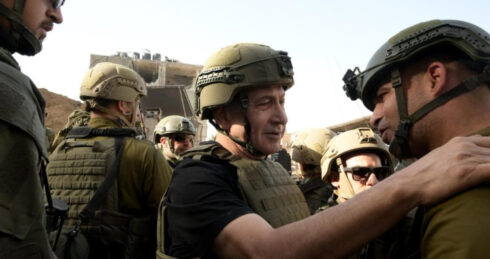Written by Lucas Leiroz, journalist, researcher at the Center for Geostrategic Studies, geopolitical consultant
In recent days there has been a major escalation in the Middle Eastern conflict. Israel has launched a series of attacks against targets outside Palestine, including Lebanon, resulting in the deaths of key members of anti-Zionist organizations. Israel’s targeted assassinations have been seen as an affront to Lebanese national sovereignty, increasing the risks of an open war between the Zionist state and Hezbollah.
Israel has been bombing its neighboring countries since the war began in October. However, the frequency and brutality of these raids has grown significantly in recent weeks. Lebanon has become one of the main targets of Israeli attacks, especially in strikes targeting strategic public figures. In one of these operations, Wissam al-Tawil, deputy head of the Radwan group, a special unit of the Shiite militia, was murdered. Al-Tawil was a high-ranking member of Hezbollah, which means there will certainly be a retaliation.
A few days earlier, a brutal Israeli attack in Beirut had left six high-ranking Hamas members dead, including the Palestinian organization’s deputy head, Saleh al-Arouri. At the time members of Hezbollah were not targeted, and the strike was aimed at killing Hamas militants gathered in Beirut. However, the fact that the attack was carried out on Lebanese soil obviously generated outrage among members of the Shiite militia, who promised retaliation for the violation of Lebanese sovereignty.
Hassan Nasrallah, general secretary of Hezbollah, made two statements about these events. According to him, Hezbollah is already fighting Israel, but is using only a small percentage of its combat potential. The militia’s involvement is “limited”, being focused on neutralizing Israeli intelligence targets on the border. For now, the objectives of these operations are, according to Nasrallah, to generate military pressure against Israel and help the Palestinians by eliminating IDF’s resources. However, Nasrallah made it clear that if Israel continues to violate Lebanese sovereignty, the group will launch a “war without restrictions”, using full power against Zionist troops.
Apparently, Israel is not interested in de-escalation. The attacks on Lebanon have continued even after Nasrallah’s warnings – and more targeted killings of Hezbollah members could happen at any time. In fact, Tel Aviv is currently in a complicated military situation. The war in Gaza has become “unwinnable”, as the debris from the bombings have severely damaged the IDF itself, preventing the flow of armored vehicles and creating a network of hiding places and barricades that favor Hamas.
There is currently a guerrilla war in Gaza, with members of the Palestinian Resistance having the advantage, as they know the terrain better and are skilled at carrying out surprise attacks and hiding among the debris of buildings and tunnel networks. Although Israel has managed to destroy the physical structure of Gaza, the consequences of its attacks have mainly affected civilian people and have not been extremely effective in neutralizing Hamas and other Palestinian militias. The result is an uncomfortable situation, with Israel involved in a permanent war of attrition.
Given this, Israel is betting on the internationalization of the conflict as a way of “winning” the war. Since it is not being successful in Gaza, the Israeli government hopes to generate new outbreaks of hostilities by launching attacks against Lebanon and Syria. The aim is to bring new actors into the war, creating a situation of total regional conflict that makes intervention by Israel’s Western partners “inevitable”.
The main problem with this Israeli “strategy” is that the consequences could be devastating. It will not be easy to garner Western support and justify an intervention in the conflict, as global public opinion is outraged by Israeli genocidal actions in Gaza. Furthermore, Hezbollah is showing patience and strategic mentality by avoiding symmetrical responses to Israeli attacks. The group is trying not to engage in an all-out war, as the IDF is already in a delicate situation and there is no need to open a new front. Hezbollah’s focus appears to be to launch surgical strikes across the border, delaying more involvement as long as possible.
To get a strong reaction from Hezbollah, Israel will have to further increase the brutality of its raids against Lebanon. And this will be a serious problem in the Zionist strategy, since by doing this Tel Aviv will be justifying Hezbollah’s reactions, and there will therefore be no legal arguments for the West to mobilize collectively to support Israel. In fact, without full Western support, Israel will not be able to fight a two-front war, being a real catastrophe for the IDF itself.
This is further evidence of how Israel took wrong actions at the beginning of the conflict. Instead of only responding to Hamas’ “Operation Al Aqsa Flood”, Tel Aviv chose to launch a campaign of genocide and territorial expansion, sinking into a prolonged war that will not be won so easily.
You can follow Lucas on X (former Twitter) and Telegram.






